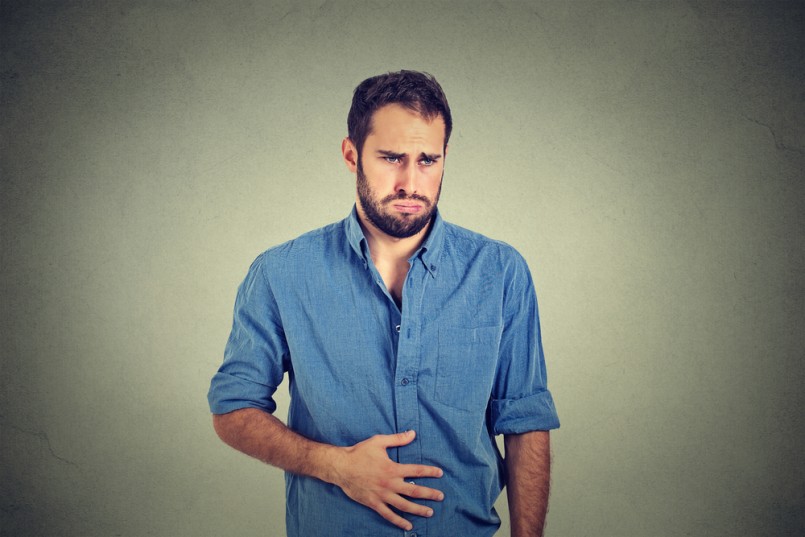
Why You Get Bloated After Eating, and What to Do About It
Don’t you just hate when an otherwise-amazing meal leaves you uncomfortable, unable to move, and several inches bigger in the waist? Trapped wind is no fun, and there’s huge potential for embarrassment if you’re, say, out on a date or stuck in an elevator with your boss. But what causes you to feel bloated after eating, and what can you do about it? I looked into it, and here’s what I found out:
Too Much, Too Fast
The first and most common cause of bloating is eating too much food. It’s simple cause and effect—the more you eat, the more stuffed you get. Try the many small meals approach to keep your portion sizes reasonable throughout the day. Of course, it’s much easier to overeat when you’re shovelling food into your trap at lightning pace. The solution? Slow the fuck down! Try putting your fork down between bites and when you feel full, stop eating.
“Gassy” Foods
Some of the stuff you eat is just naturally gassy, so you’re going to feel bloated after eating it anyway. Foods that are high in certain sugars, starches and fiber can take a while to digest, which means more gasses are released in the process. The most common culprits are beans, lentils, Brussels sprouts, cabbage, cauliflower, prunes, dairy products and anything made using grains. Try cutting back on these a little and see how you get on.
Reheated Food
Believe it or not, certain foods can become more gassy when reheated. Microwaving starchy foods like rice, pasta and potatoes changes their molecular structure and makes the starch more resistant to the digestive process—strange, but true. Of course, the more difficult they are to digest, the more bloating you’ll experience. The solution is obvious enough—just avoid reheating potatoes, rice, pasta and other starchy foods in the microwave. Simple!
Too Much Fiber
Fiber is fantastic for keeping you healthy and regular, but it’s also completely indigestible. Therefore, any amount of fiber in your food is likely to make you feel bloated after eating, especially if you abruptly increase your intake. You don’t need nearly as much fiber as conventional wisdom would have you believe, so don’t bother forcing yourself to eat huge amounts of whole wheat bread or all-bran cereal. Oh, and drink plenty of water to keep things moving!
Bacterial Imbalance
There’s a power struggle happening in your gut between the “bad” bacteria you ingest from the environment and the “good” bacteria (or gut flora) that regulates the digestive process and keeps you healthy. If you’re taking antibiotics, suffering from food poisoning, or just have a generally shitty diet, the delicate balance can be disrupted and “bad” bacteria can proliferate, making you more prone to bloating and gas. To prevent this, eat healthy and consider taking a good daily probiotic supplement.
Medical Conditions
In rarer cases, certain medical conditions like irritable bowel syndrome (IBS), coeliac disease and lactose intolerance can cause you to feel bloated after eating. These are often accompanied by other symptoms like headache, cramping and diarrhea, and will require medical intervention to treat. If you suspect your bloating is more than just a little trapped wind, get your doctor to look into it at the next opportunity.
Q: Do you tend to get bloated after eating? Tell us what you do about it in the comments below!
 David Carroll is a freelance writer, self-published author, and chief health-nut at thepaleotoolkit.com. Outside of work, he loves hurling (an amazing Irish sport), playing video games and hanging out with his dogs. Follow him on Twitter (@DavidAshCarroll) and Google+.
David Carroll is a freelance writer, self-published author, and chief health-nut at thepaleotoolkit.com. Outside of work, he loves hurling (an amazing Irish sport), playing video games and hanging out with his dogs. Follow him on Twitter (@DavidAshCarroll) and Google+.


